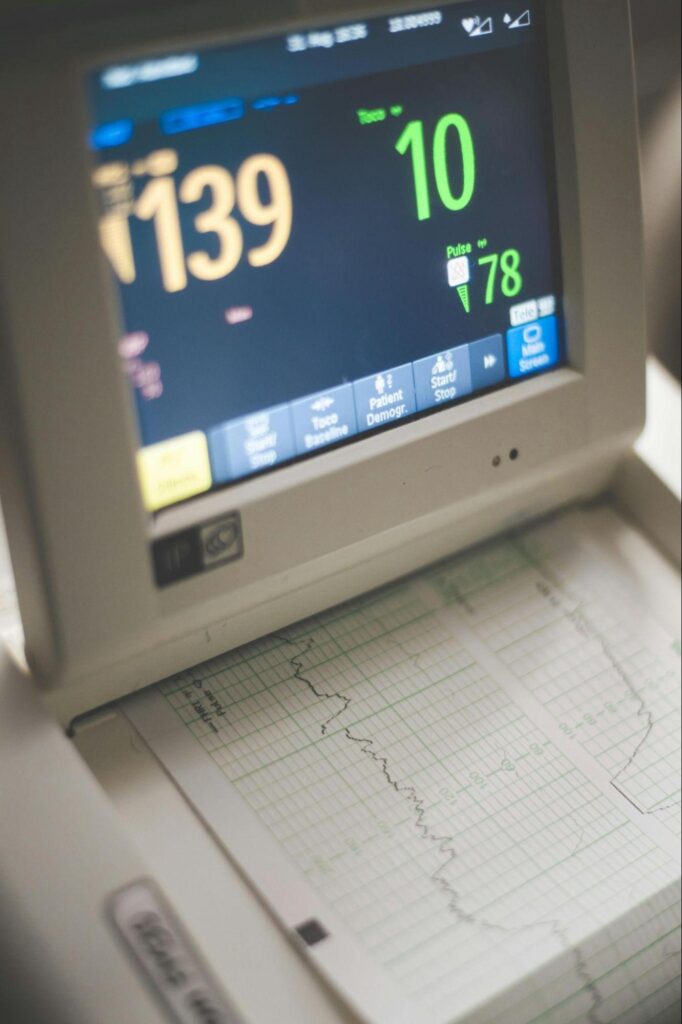
Blood pressure serves as a vital indicator of cardiovascular health, showing how strongly blood pushes against artery walls as the heart pumps. Abnormal blood pressure, whether too high (hypertension) or too low (hypotension), can lead to significant health concerns like heart disease, stroke, and fainting episodes.
In recent years, the role of cannabis in managing blood pressure has become a topic of interest in Australia and around the world. However, research findings remain mixed. Some studies suggest that CBD (cannabidiol) may assist in reducing both resting blood pressure and spikes caused by stress. In contrast, THC (tetrahydrocannabinol), the psychoactive compound in cannabis, can temporarily raise blood pressure and heart rate, often followed by a drop that may induce dizziness.
In this article, we explore how cannabis interacts with the body, its influence on blood pressure, and the possible benefits and risks for Australians.
How Cannabis Works in the Body
Cannabis affects the body by interacting with the endocannabinoid system—a network of receptors spread throughout the brain and body. This system plays a role in managing mood, appetite, sleep, and cardiovascular function, making it central to how cannabis affects various bodily processes.
The two primary cannabinoids in cannabis, THC and CBD, interact with the endocannabinoid system in distinct ways:
- THC: This psychoactive compound primarily binds to CB1 receptors in the brain, affecting heart rate and blood pressure, and is responsible for the “high” sensation.
- CBD: A non-psychoactive compound, CBD interacts with both CB1 and CB2 receptors. It may aid in relaxation and stress relief without inducing a high, and early research suggests it might also reduce anxiety and support vascular relaxation, potentially impacting blood pressure positively.
Cannabis and Blood Pressure: Short-Term Effects
In the short term, particularly when consuming THC-dominant strains, cannabis can cause noticeable fluctuations in blood pressure. Many people experience a temporary spike in heart rate and blood pressure shortly after consumption. This initial rise is mainly due to THC’s vasoconstrictive effects, which narrow blood vessels and increase cardiac output. However, this effect is often followed by a drop in blood pressure—especially noticeable upon standing—known as orthostatic hypotension.
This sudden drop in blood pressure may lead to dizziness or lightheadedness, particularly for those predisposed to lower blood pressure. Australian patients should approach medical cannabis cautiously, particularly if they have any underlying cardiovascular conditions, as these fluctuations may lead to unwanted side effects.
Long-Term Effects of Cannabis on Blood Pressure in Australia
The long-term impact of cannabis use on blood pressure is still under investigation, and findings are diverse. Some studies indicate that long-term cannabis use might result in lower resting blood pressure over time, especially among regular medical cannabis users. Conversely, other research suggests that frequent cannabis use—particularly with THC-heavy strains—could increase the risk of hypertension or other cardiovascular conditions, such as elevated heart rate or arrhythmias.
While there is no definitive answer yet, individual responses appear to vary based on factors like dosage, frequency of use, and the specific strain consumed. More extensive studies are needed to fully understand cannabis’s long-term cardiovascular effects, especially in an Australian context, where patient demographics and strains vary widely.
Individual Variability in Blood Pressure Response
Cannabis’s impact on blood pressure can vary significantly across individuals. Factors such as genetics, general health, tolerance level, and consumption method (e.g., smoking, vaping, or edibles) all influence how cannabis affects blood pressure. Additionally, differences in strain composition—whether it’s THC or CBD-dominant, or the specific blend of cannabinoids and terpenes—can result in different physiological responses.
For some Australians, cannabis may help reduce stress and anxiety, thereby lowering blood pressure. For others, particularly those sensitive to THC, the opposite may occur, leading to heightened blood pressure and heart rate.
Benefits of Cannabis in Managing Blood Pressure
While research is ongoing, several studies have pointed to CBD’s potential benefits for blood pressure management. Here are some promising findings:
- Reduction of Stress-Related Blood Pressure: CBD has shown potential in reducing both resting blood pressure and blood pressure spikes related to stress. This could benefit individuals with stress-related hypertension.
- Vasorelaxation and Anxiety Reduction: CBD promotes relaxation of blood vessels and reduces anxiety, which may aid in managing high blood pressure.
- Anti-Inflammatory Properties: CBD’s anti-inflammatory effects could support heart health, indirectly benefiting blood pressure management.
However, because THC can have more unpredictable effects on blood pressure—often causing short-term increases—those concerned about managing blood pressure might consider CBD-dominant products as a potentially safer option.
Potential Side Effects of Cannabis for Australians with Cardiovascular Concerns
Like all medications, cannabis may have side effects, particularly for individuals with pre-existing cardiovascular issues. Here are some potential side effects to be aware of:
- Short-Term Blood Pressure Spikes: THC may elevate both heart rate and blood pressure shortly after use, which could cause palpitations or discomfort for some users.
- Dizziness or Fainting: Cannabis can lead to orthostatic hypotension—a sudden drop in blood pressure upon standing—causing lightheadedness or fainting in some cases.
- Increased Anxiety: High doses of THC can provoke anxiety or paranoia, which may raise blood pressure for certain users.
- CBD Side Effects: While generally considered safe, CBD may cause minor issues such as fatigue, diarrhea, or changes in appetite for some individuals.
Given these potential side effects, starting with a low dose and consulting a healthcare provider is advisable for Australians considering medical cannabis, particularly those with heart-related conditions.
Conclusion: Cannabis and Blood Pressure in Australia
CBD offers potential for lowering stress-related blood pressure by promoting relaxation and reducing inflammation, making it a promising candidate for Australians seeking blood pressure management. THC, on the other hand, can cause short-term increases in heart rate and blood pressure, sometimes followed by drops that may pose risks for those with cardiovascular conditions.
As cannabis continues to grow in popularity as a treatment option in Australia, more research is needed to understand its long-term impact on cardiovascular health. In the meantime, CBD may be a safer choice for those specifically interested in managing blood pressure.
For personalized advice on medical cannabis use, particularly regarding cardiovascular health, it’s important to consult with a qualified healthcare provider in Australia. Always seek professional guidance before making any changes to your treatment plan, especially if you have underlying heart or blood pressure concerns.







